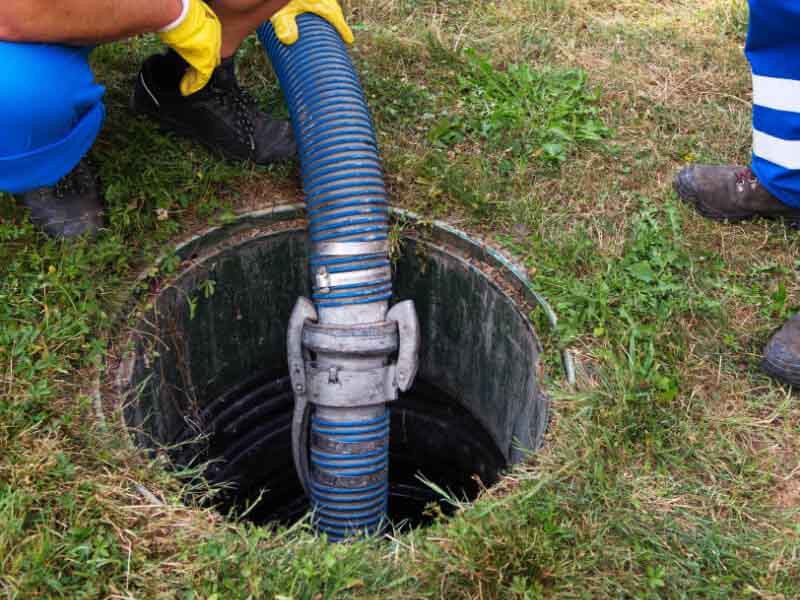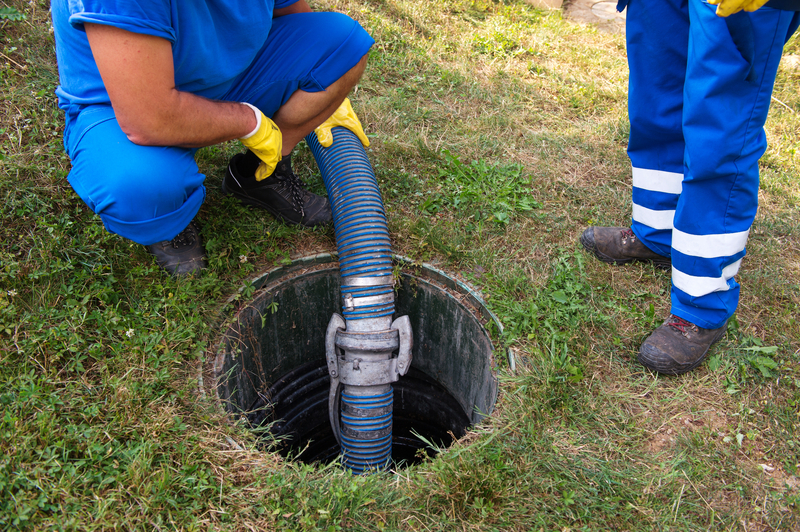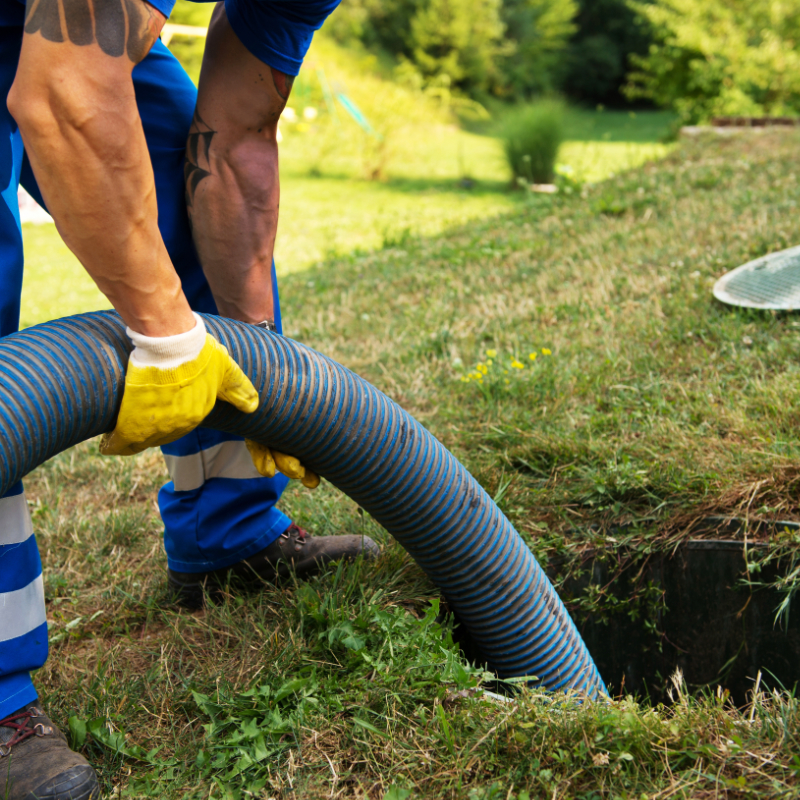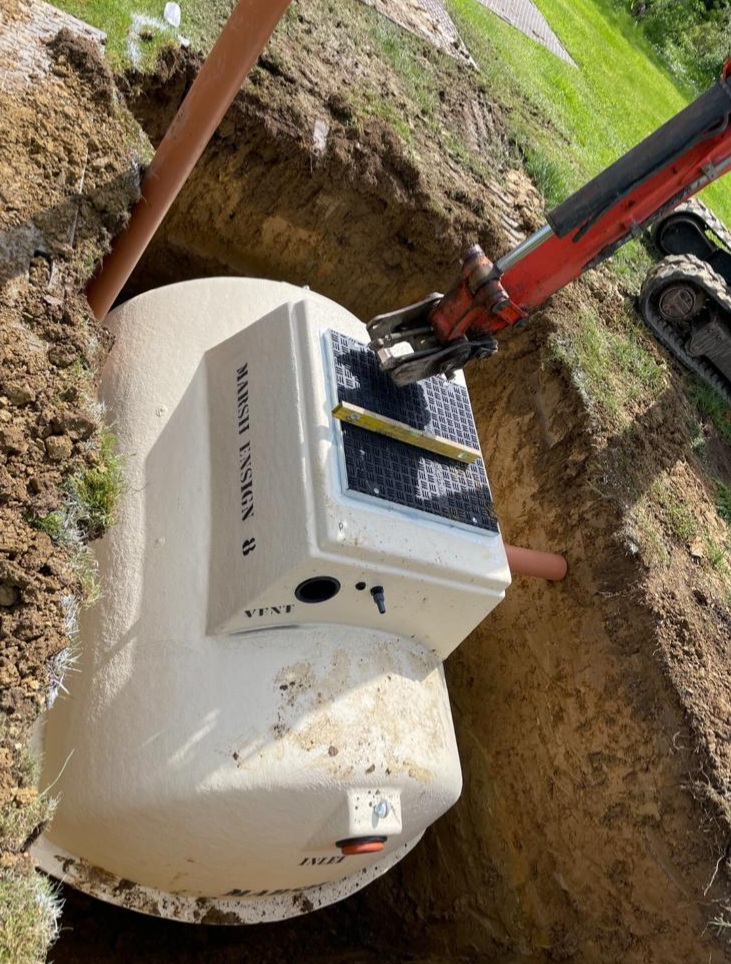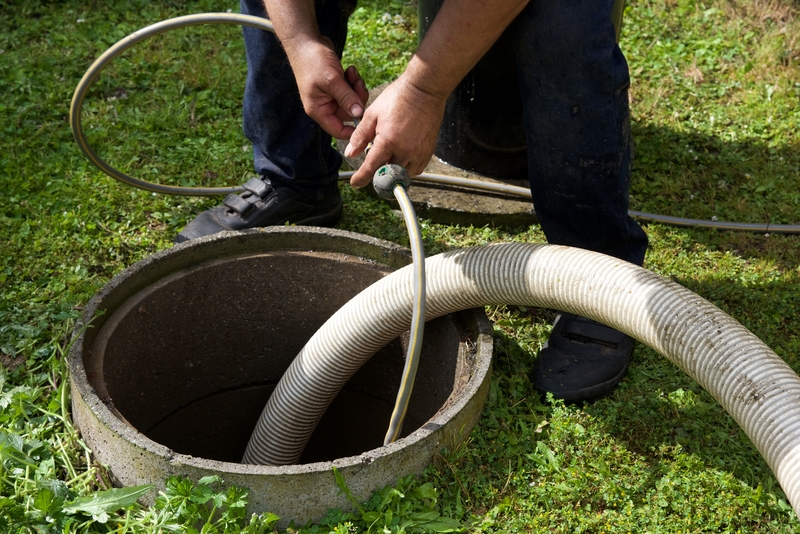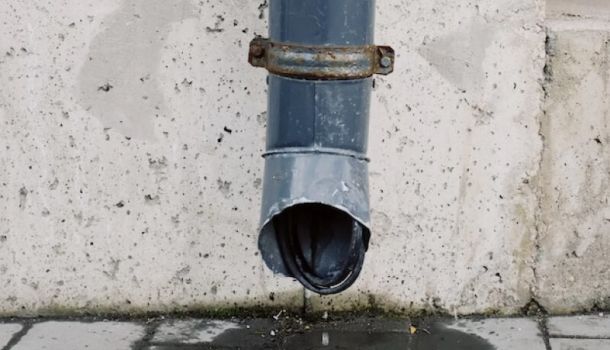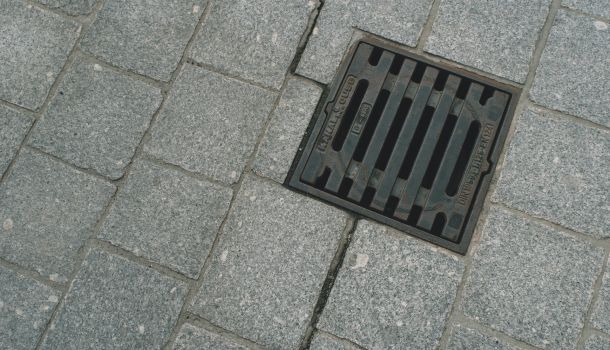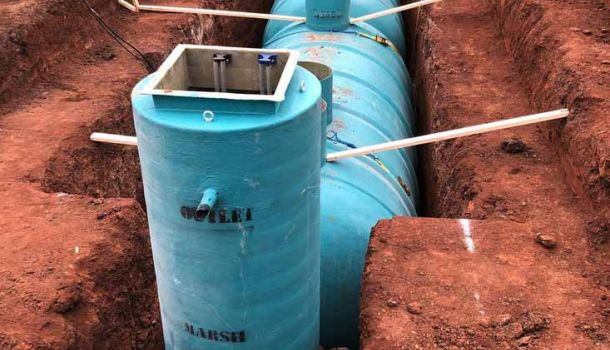How often does your Septic Tank need cleaning?
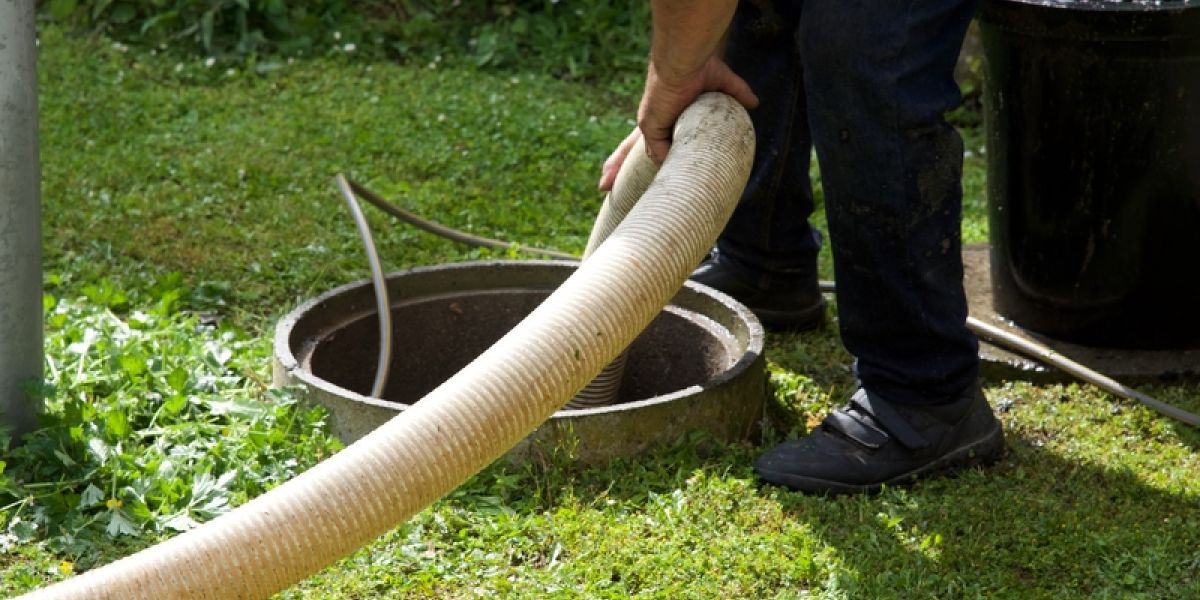
Maintaining a regular septic tank cleaning schedule is vital for ensuring the longevity and efficiency of your septic system. Over time, solid waste accumulates in the tank, leading to clogs, backups, and potential system failures. So, how often does your septic tank need cleaning?
In this blog, we will delve into how the cleaning process of septic tanks work and how often you need to maintain your sewage treatment plant system.
Understanding Septic Tanks
Septic tanks are essential to a property's wastewater management system, particularly in areas without local sewage services. These sewage treatment plants help maintain your home's drainage field, ensuring a safer, and efficient domestic sewage solutions for you and your family.
Let's take a quick look at how septic tanks work and why regular maintenance of these sewage tanks are so crucial:
How Septic Tanks Work
Septic tanks function as on-site wastewater treatment systems for properties that are not connected to municipal sewer lines. Here's an overview of how septic tanks work.
- Wastewater Collection: All wastewater generated from the household, including water from sinks, toilets, showers, and washing machines, flows into the septic tank.
- Separation Process: Once inside the tank, the wastewater undergoes a natural separation process. Heavy solids settle at the bottom of the tank to form sludge, while lighter materials like oil and grease float to the top as scum. This separation is aided by the baffle or partition within the tank.
- Bacterial Breakdown: Within the septic tank, naturally occurring bacteria start breaking down the organic matter present in the wastewater. These bacteria help decompose the solids into liquid effluent and gases.
- Clarification and Filtration: The clarified liquid effluent, which is relatively clear compared to the initial wastewater, exits the septic tank and flows into the drain or leach fields. Here, the effluent undergoes further filtration through the soil, where beneficial soil organisms continue the treatment process, ultimately purifying the water before it re-enters the groundwater.
- Maintenance: To ensure the optimal functioning of a septic tank system, regular maintenance is crucial. This includes periodic pumping of the tank to remove accumulated sludge and scum, as well as conducting inspections to identify any potential issues early on.
Role of Regular Maintenance:
- Preventing Clogs: Over time, solid waste accumulates in the tank, leading to clogs and potential backups in the plumbing system. Regular pumping removes excess sludge, preventing blockages.
- Avoiding Drain Field Issues: If the septic tank is not maintained, solid waste can flow into the drain field, causing clogs and potentially damaging the soil's ability to absorb wastewater.
- Extending Lifespan: Routine maintenance, including inspections and pumping, helps extend the lifespan of the septic system, avoiding costly repairs or replacements.
- Protecting Health and Environment: Properly functioning septic tanks prevent contamination of groundwater and surface water, safeguarding human health and the environment.
By understanding septic tanks' basic functions and following a proper maintenance schedule, homeowners can help ensure the efficiency and longevity of their septic systems while also protecting the environment and public health.
So, how often does your septic tank need cleaning?
As a general guideline, septic tanks typically require pumping and cleaning every 3 to 5 years. However, certain factors can affect this. Let's take a look at what can affect a septic tank systems cleaning frequency and why they may affect your shall dig septic systems maintenance schedule.
Factors Determining the Frequency of Septic Tank Cleaning
Household Size:
The number of occupants in a household directly impacts the volume of wastewater generated and, consequently, the rate at which the septic tank fills up with solids. Larger households often require more frequent tank cleaning.
Water Usage:
High water usage, such as excessive laundry loads, long showers, or frequent dishwashing, can accelerate the accumulation of solids in the septic tank, necessitating more frequent cleanings.
Tank Size:
The size of the septic tank plays a crucial role in determining how often it needs cleaning. Smaller tanks fill up quicker and may require more frequent pumping than larger ones.
Solid Accumulation:
The rate at which solid waste accumulates in the tank affects the cleaning frequency. Regular monitoring of sludge levels is essential to determine when cleaning is necessary.
Usage Habits:
Analyse your household's usage patterns, such as the frequency of laundry loads, dishwashing, and bathroom usage. High water usage activities can impact the tank's solid accumulation rate, influencing the cleaning schedule.
Certain habits, such as flushing non-biodegradable items, using excessive amounts of chemicals, or disposing of grease down the drain, can contribute to faster tank filling and may require more frequent cleanings.
Local Regulations:
Some areas have specific regulations or guidelines regarding septic tank maintenance and inspection frequencies. It's essential to comply with these regulations to ensure proper system operation.
Inspection Results:
Regular inspections by professionals can help assess the condition of the septic tank and determine whether cleaning is needed. The results can also guide the frequency of maintenance activities.
Environmental Conditions:
Consider environmental factors like soil drainage, groundwater levels, and local regulations when determining the frequency of septic tank cleanings. Certain conditions may warrant more frequent maintenance to prevent contamination or system failure.
Factors like soil type, groundwater levels, and climate can impact how well the septic system functions. Understanding local environmental conditions can help determine optimal cleaning intervals.
General Advice for Septic Tank Cleaning
- Regular Inspections: Conduct periodic inspections of your septic system to assess the tank's solids level and identify any signs of potential issues.
- Cleaning Intervals: The general recommendation for septic tank cleaning is every 3 to 5 years. However, individual circumstances, such as those mentioned above, may warrant more frequent cleanings.
- Professional Advice: Consulting with septic system professionals can provide valuable insights into your system's specific needs. They can assess your tank's condition, recommend appropriate cleaning intervals, and offer guidance on maintaining a healthy septic system.
- Early Signs of Issues: Look for signs of septic system problems, such as slow drains, foul odours, or soggy areas around the drain field. Addressing these issues promptly can help prevent costly repairs and damage to your system.
- Foul Odours: Strong, unpleasant odours emanating from drains or the area around the septic tank can indicate a buildup of sludge and scum, signalling the need for a thorough cleaning.
- Slow Drainage: Water draining slowly from sinks, showers, or toilets could signify a full septic tank. This slowdown occurs when the tank reaches capacity and cannot process wastewater efficiently.
- Lush Grass Over the Drain Field: Abnormally lush and green grass above the drain may suggest that the septic tank is full and overflowing, causing excess nutrients to fertilise the surrounding soil.
- Record Keeping: Maintaining a record of past cleanings, inspections, and any issues encountered can help track the maintenance history of your septic system. This documentation can aid in identifying trends and establishing a proactive approach to system care.
- Emergency Situations: If your septic system backup or alarming symptoms occur, do not delay seeking professional assistance. Immediate action can mitigate potential risks to your health, property, and the environment.
Benefits of Regular Septic Tank Cleaning:
- Preventing Backups and Clogs:
- Regularly cleaning your septic tank removes accumulated solids, preventing clogs that could lead to backups in your drains and toilets.
- Maintaining a clear pathway for wastewater flow reduces the risk of plumbing issues and ensures proper system operation.
2. Extending the Lifespan of the Septic System:
- Proper maintenance, including regular cleanings, can significantly extend the lifespan of your septic system.
- By reducing strain on the system components and ensuring efficient operation, regular cleaning helps prolong the overall functionality of the septic tank and associated components.
3. Maintaining Water Quality and Environmental Health:
- Keeping your septic tank clean is crucial for preventing the contamination of groundwater and surface water sources.
- By avoiding seepage of untreated wastewater into the environment, you maintain water quality and safeguard the local ecosystem from harmful pollutants.
4. Avoiding Costly Repairs:
- Proactive maintenance through regular cleanings can help you avoid costly repairs or complete system failures in the future.
- Addressing potential issues early on saves money in the long term and ensures the continued functionality of your septic system, providing peace of mind and operational efficiency.
Regular septic tank cleaning is more than just a maintenance task; it is a proactive measure to protect your property, preserve environmental health, and ensure the longevity of your septic system. By prioritising regular cleanings, homeowners can enjoy a well-functioning septic system while minimising the risk of costly repairs and environmental damage.
When to Hire Professionals:
Complex Issues: If you suspect significant problems with your septic system, such as extensive clogs or backups, it's advisable to hire professionals who have the expertise and equipment to handle complex issues effectively.
Regulatory Compliance: Professionals are well-versed in local regulations regarding septic tank maintenance and waste disposal, ensuring that the cleaning process adheres to legal requirements.
Thorough Inspection: Professional cleaners can perform thorough inspections before and after cleaning, identifying potential issues and ensuring the system functions optimally.
Safety Considerations
If you decide not to go with professionals, there are some safety considerations you need to adhere to. You can check out our What Is A Septic Tank blog for more information on this topic. Here's a brief overview of safety precautions below:
- Health Risks: DIY septic tank cleaning poses health risks due to exposure to toxic gases, bacteria, and harmful pathogens present in the tank. Professionals are equipped with proper safety gear to minimise these risks.
- Equipment Requirements: DIY cleaning may require specialised equipment you might not have access to, such as pumps, hoses, and protective gear. Professionals come prepared with the necessary tools for safe and efficient cleaning.
- Environmental Impact: Improperly cleaning or disposing of septic tank waste can harm the environment. Professionals follow environmentally friendly practices to ensure proper waste management and disposal.
Regular septic tank cleaning is not just a maintenance task but a crucial step in ensuring a properly functioning system.
Final Thoughts
In conclusion, regular maintenance and cleaning of your septic tank are vital for ensuring its optimal functionality, preventing backups and clogs, extending the system's lifespan, maintaining water quality, and avoiding costly repairs.
By understanding the factors that influence the cleaning frequency and prioritising proactive maintenance, you can preserve the efficiency of their septic systems, protect the environment, and safeguard their property against potential issues.
Cotswold Drainage
For information on shallow dig septic tanks, installing your next reliable septic tank, drainage queries and any regulations surrounding environmental protection agency regulations, contact us today.
Our Top
Articles

